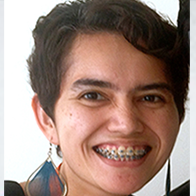Among all of my academic crushes, Azmi Sharom is right up there with Farish Noor and Albus Dumbledore. Yes, a lawyer, a historian and a wizard do have some things in common, among which is their love for gaining and spreading knowledge and the desire to educate rather than merely regurgitate facts – this is the most inspiring to me. They are all academics, and at some point of their lives they have been somehow shackled, hackled or ridiculed for simply being a learned person.
The recent charges against Azmi Sharom lead me to the question: Is there academic freedom in Malaysia?
There is actually no better time than today to be an academic – the Internet has made things so much easier for any one and every one (with Internet connection) to gain knowledge. One just needs to form a hypothesis of thought, log on and start searching away on Google Scholar or PubMed. Even our referencing is made easier with software like Endnote and Refworks. There are many open-source contents, more and more academic journals are pushing for open access and last I checked, most short courses offered by various Ivy League institutions are also offered online. The innovation of Skype and FaceTime has allowed easier global collaboration, discourse and discussion sessions to occur and transfer of knowledge across the matrix of the World Wide Web.
But for one to call the academia a profession, there is the process of forming that original hypothesis, conducting an extensive literature search, writing a grant application, getting the grant money, doing the work, and then writing the summarised, backed-up-by-data report which gets peer-reviewed before it sees the light of day. The timeline for this whole process ranges from 1 to 5 years per grant and often gives birth to more hypotheses along the way, and the process expands and lengthens. On top of that, one also has to give lectures, mark exam papers, complete the dreaded MQF documents and supervise students for their final year project, masters or PhD theses to ensure that there exists the next generation of academics.
Compare that lengthy process to the powers of social media. One particular piece of information needs only be condensed into 140 characters for it to be re-tweeted millions of time. One person’s Facebook status can be shared simply by a click of a button – and more often than not taken out of context. And don’t get me started on screen captures!
I do not think that pictures of my latest gastronomic adventures or new pet can be considered seditious, but recent events worry me on more than one level. Already, there are rumours about policing Facebook and it seems there is just an atmosphere of fear about sharing opinions and being heard. Fear about discussing issues, about openly stating that “Hey, from what I’ve read and know, from what I study – this is my opinion.”
My biggest worry, thus, is that this fear will stop people from asking the hard questions which need to be asked. That this fear will keep people in silence. That this fear will shackle academics from doing what we do best: to criticise and analyse current knowledge in our field of interest.
Already, there is a pin-drop silence in most lecture halls where students merely listen to their lecturers, strumming along to what will get them a piece of paper qualification at the end in a subject which barely captures their interest. Are we also going to allow “academics” to only teach from a guided textbook and to refrain from discourse and discussions?
This Rumi quote sums it best, I think:
“Out beyond the ideas of wrongdoing and rightdoing, there is a field. I’ll meet you there.” – September 10, 2014.
* This is the personal opinion of the writer or publication and does not necessarily represent the views of The Malaysian Insider.


Comments
Please refrain from nicknames or comments of a racist, sexist, personal, vulgar or derogatory nature, or you may risk being blocked from commenting in our website. We encourage commenters to use their real names as their username. As comments are moderated, they may not appear immediately or even on the same day you posted them. We also reserve the right to delete off-topic comments